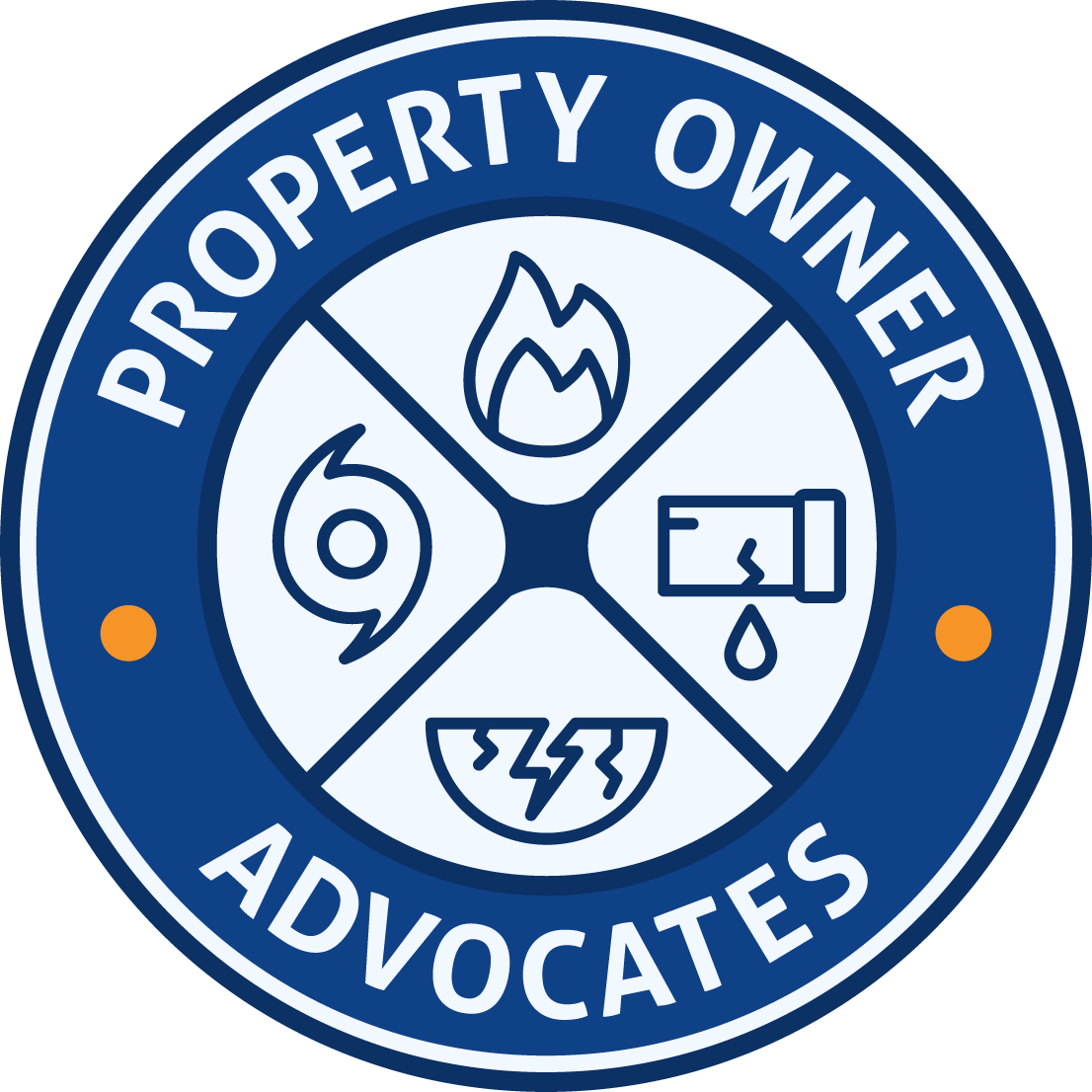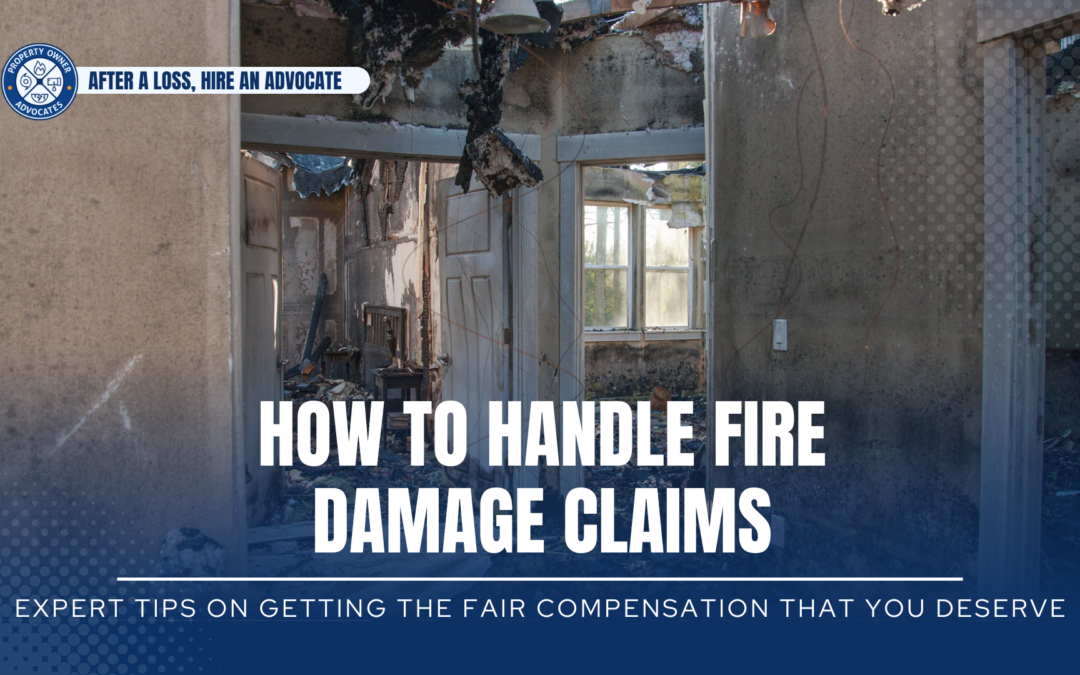When the Fire Is Out, the Real Work Begins
A fire can devastate a property in minutes — but the smoke, soot, and water used to put it out can cause damage that lingers for months. For Florida homeowners and business owners, filing a fire damage insurance claim often feels more stressful than the fire itself.
Insurance companies are known to delay, undervalue, or deny parts of claims, leaving policyholders short on funds when they need help the most. That’s why understanding the claims process — and how to advocate for yourself — is critical.
➡️ If you’re not sure what the insurance company typically pays, check out our breakdown of the average payout for fire claims in Florida.
Step 1: Notify Your Insurance Company Promptly
Once everyone is safe, your first call should be to your insurer. Most Florida policies require “prompt notice” of a loss. Waiting too long could give your carrier an excuse to reduce or deny payment.
📌 Pro Tip: Log the date, time, and person you spoke with, and request written confirmation that your claim has been opened.
Step 2: Document Everything Before Cleanup
Your claim will only be as strong as the evidence you provide. Before touching a broom or tossing damaged belongings:
- Take wide-angle photos of the property, inside and out.
- Capture close-ups of walls, ceilings, flooring, appliances, and furniture.
- Record video walkthroughs of every room.
- Save receipts for hotels, meals, emergency repairs, and temporary housing.
- Get a copy of the fire department report for your records.
Hidden damage is often overlooked. Don’t forget to check:
- Attics and crawlspaces
- Air ducts and HVAC units
- Roof trusses and insulation
- Smoke-stained closets or cabinets
- Water-damaged walls and floors
➡️ Many homeowners underestimate smoke infiltration — here’s how to confirm whether smoke and soot damage is covered by insurance.
Step 3: Mitigate Further Damage
Every policy requires the homeowner to prevent additional damage, known as mitigation.
- Board up windows and doors.
- Tarp roof openings.
- Hire a licensed restoration company for smoke removal and drying.
Keep every invoice. If you fail to mitigate, insurers may try to deny portions of your claim.
Step 4: Prepare for the Adjuster’s Visit
An insurance adjuster will inspect your home, but remember: they work for the insurance company, not you.
Be proactive:
- Walk them through each room and point out hidden issues.
- Share your photos, receipts, and reports.
- Ask whether they are calculating Replacement Cost Value (RCV) or Actual Cash Value (ACV).
➡️ See our full guide on how to deal with an insurance adjuster after a fire to make sure you’re ready for the inspection.
Step 5: Know Your Policy Coverage
Not all fire claims are handled the same way. Review your policy to understand:
- Dwelling Coverage – Repairs to the structure.
- Contents Coverage – Replacement of furniture, clothing, and appliances.
- Additional Living Expenses (ALE) – Reimbursement for hotels, meals, rentals if your home is unlivable.
- Valuation Method – RCV pays for replacement at today’s cost; ACV subtracts depreciation.
➡️ For a quick reminder, our homeowner’s fire recovery checklist covers the first steps you should take right after the fire.
Step 6: Negotiate With Confidence
The first offer you receive may not reflect the true cost of rebuilding. To strengthen your position:
- Get independent estimates from licensed Florida contractors.
- Compare them against the insurer’s estimate.
- Request supplemental payments if more damage is discovered or repair costs exceed the initial payout.
- Stay professional but persistent — follow up regularly.
Warning: Read every claim check letter carefully. Some insurers include “final settlement” language. Don’t cash the check until you know your rights.
➡️ If you’ve already been shortchanged, here’s how to appeal an underpaid fire damage claim.
Step 7: Bring in Experts if Needed
If your claim stalls or feels undervalued, outside experts can help:
- Public Adjusters – Licensed to represent only policyholders, not insurers.
- Engineers & Appraisers – Identify structural and hidden damage.
- Restoration Contractors – Provide accurate repair documentation.
These professionals help level the playing field when insurers use delay tactics.
Common Reasons Fire Claims Get Denied
- Late notification of loss
- Insufficient documentation
- Exclusions (unapproved renovations, improper use)
- Pre-existing or unrelated damage
- Failure to mitigate additional damage
➡️ Learn from others’ experiences — avoid these 7 common mistakes homeowners make after a fire.
Fire Claim FAQs
🔹 How long does a fire claim take to settle in Florida?
Minor claims may wrap up in 30–60 days. Larger or disputed claims can take six months or longer.
🔹 Does homeowners insurance cover smoke and soot?
Yes, most policies do — but carriers often downplay the damage unless you provide clear documentation.
🔹 Can I hire my own adjuster?
Absolutely. Florida law allows you to hire a licensed public adjuster who works only for you.
Final Thoughts
Recovering after a fire is never easy. But if you document thoroughly, understand your policy, and push back against low offers, you can secure the settlement you need to rebuild.
And remember — you don’t have to face the process alone.
Schedule a free policy review with Property Owner Advocates. Our team helps Florida homeowners uncover hidden damage, fight unfair delays, and maximize recovery after fire, smoke, or soot losses.

